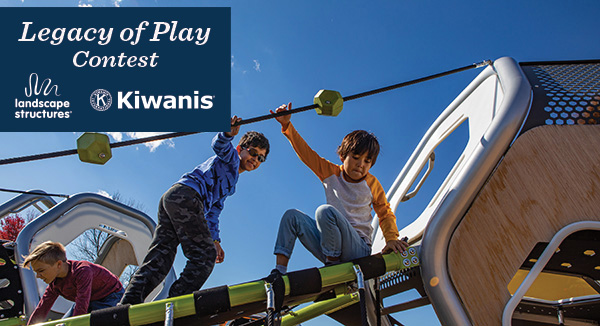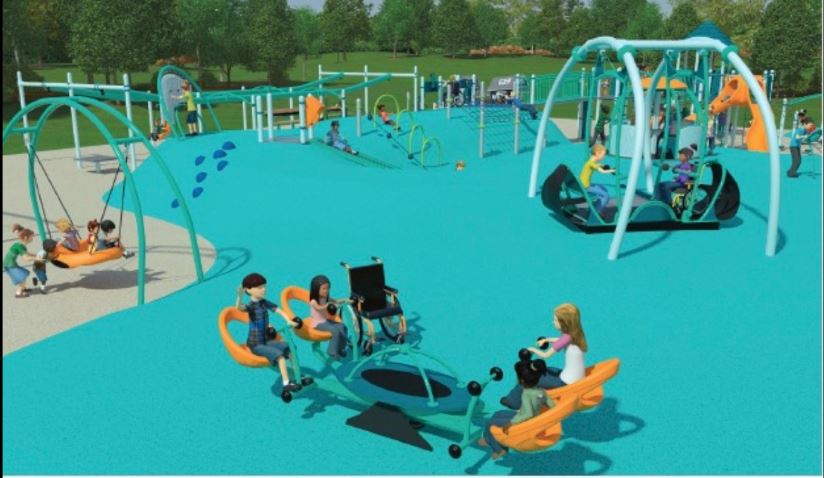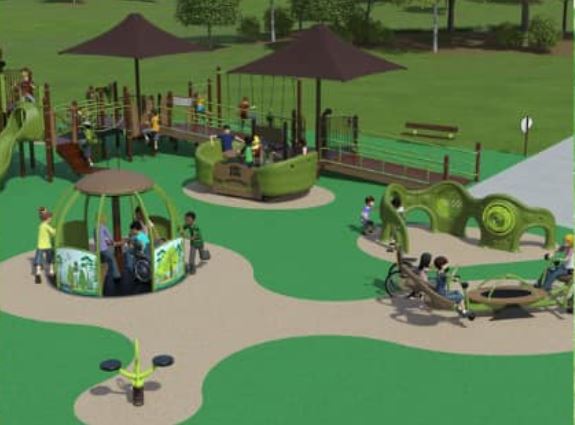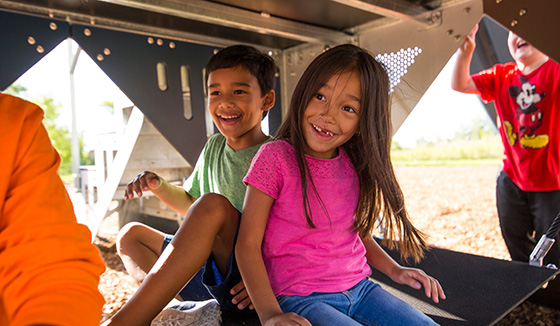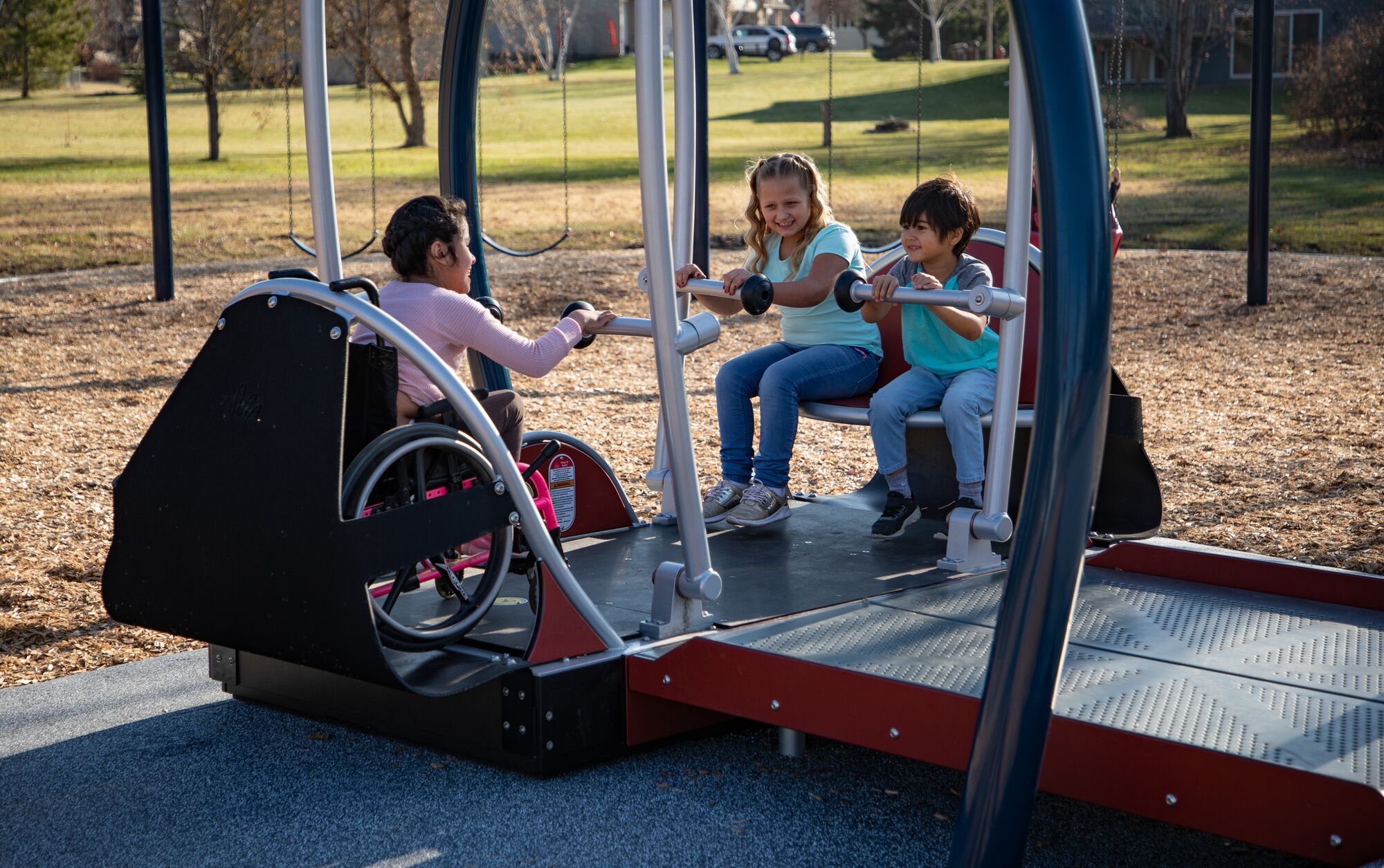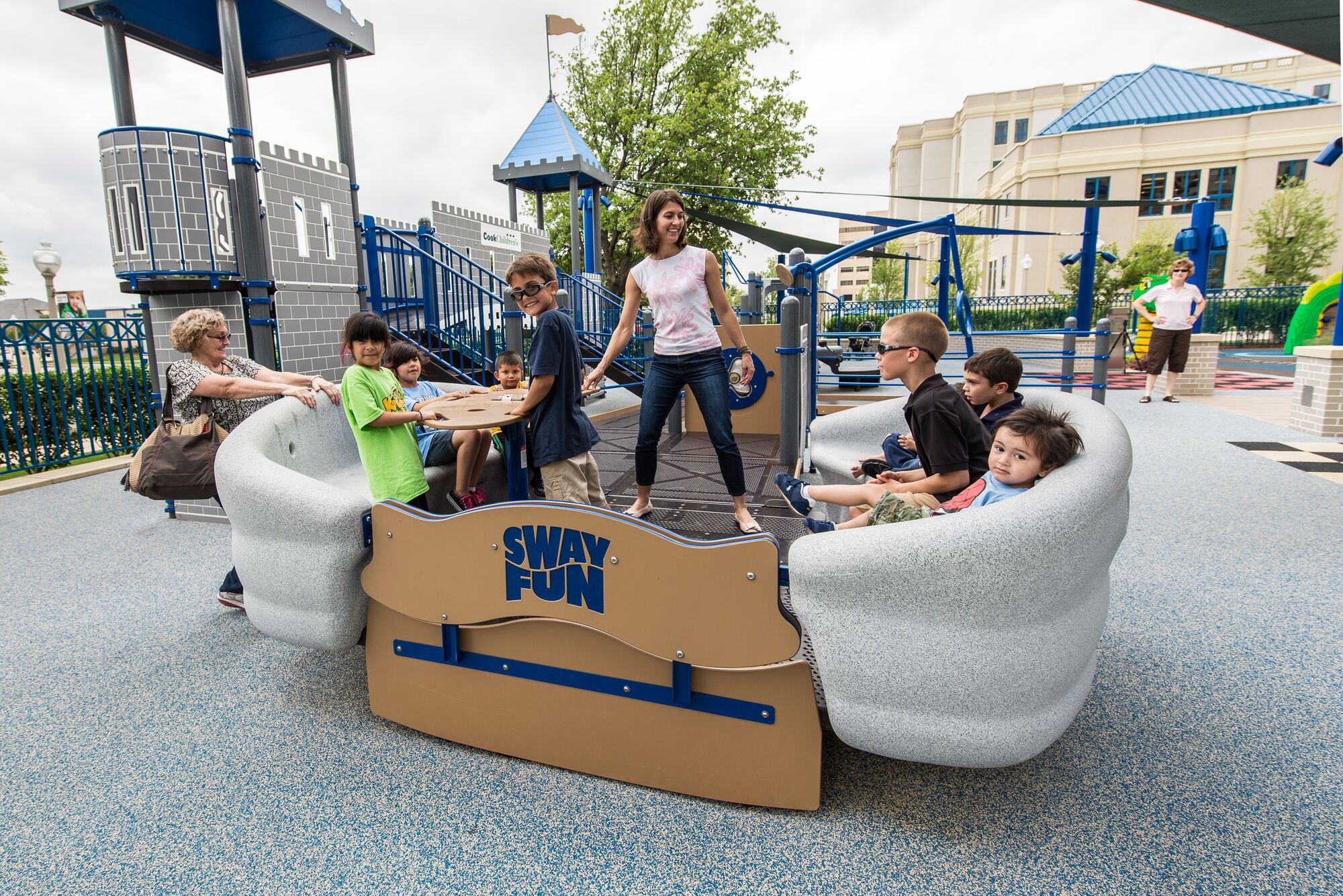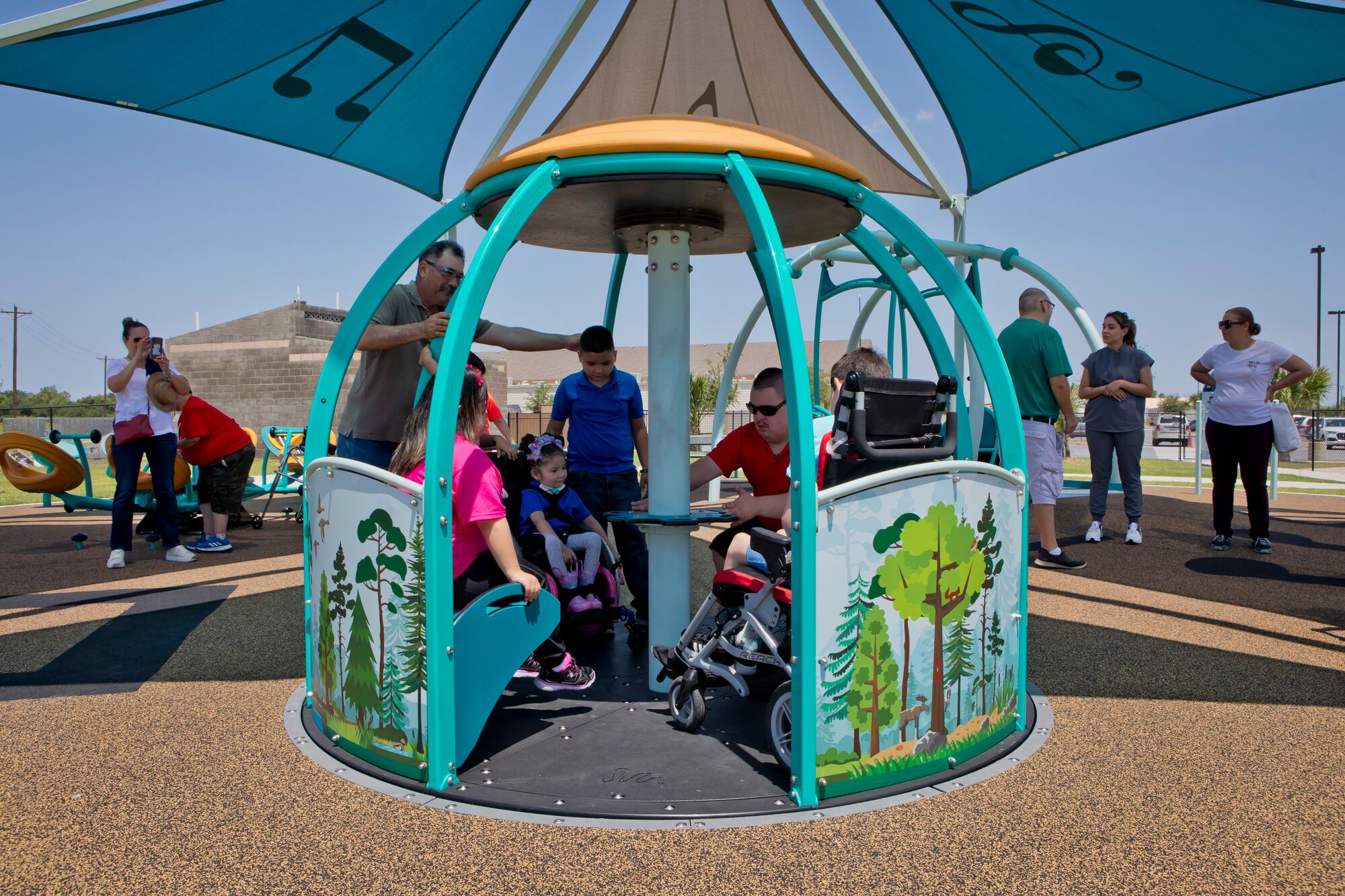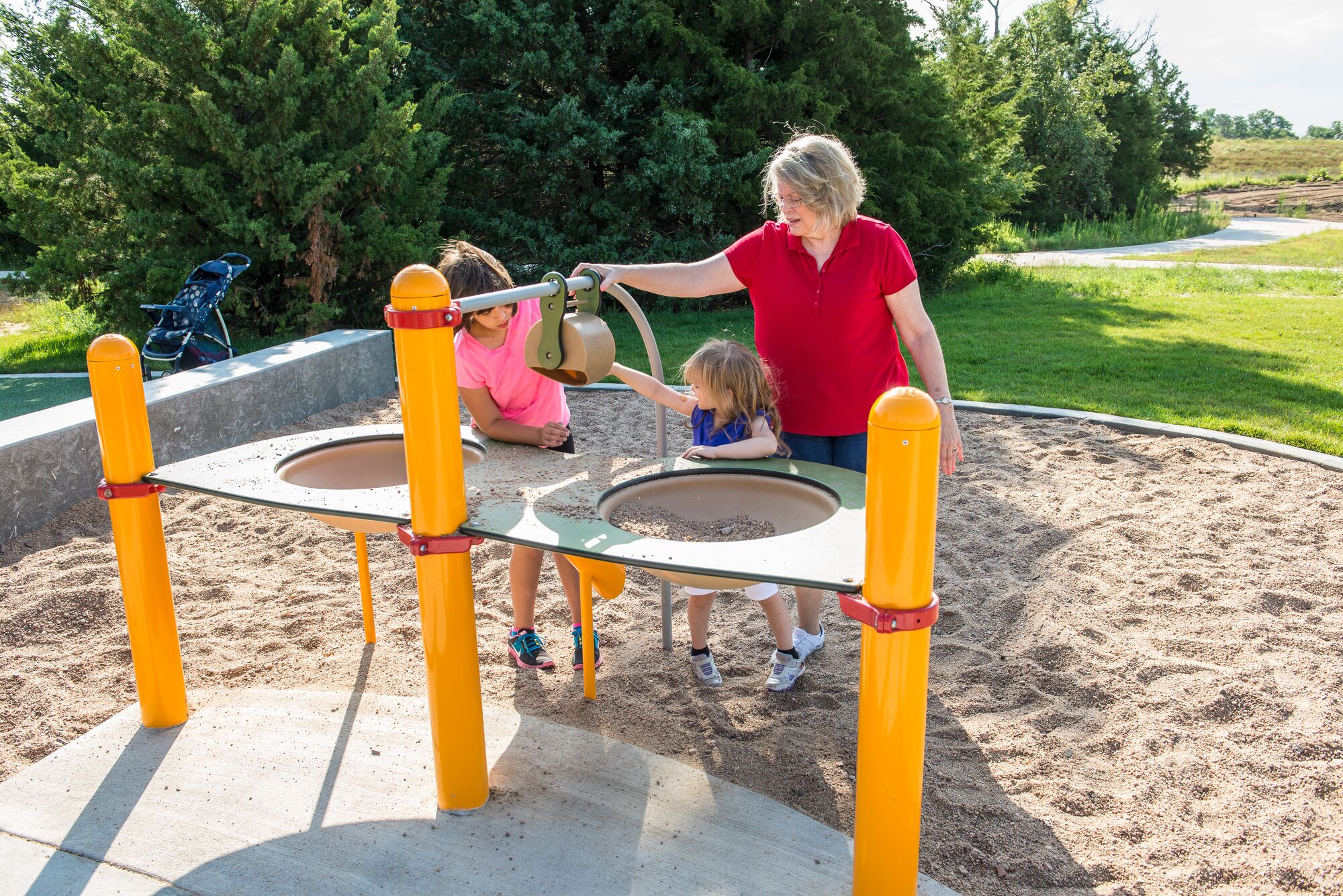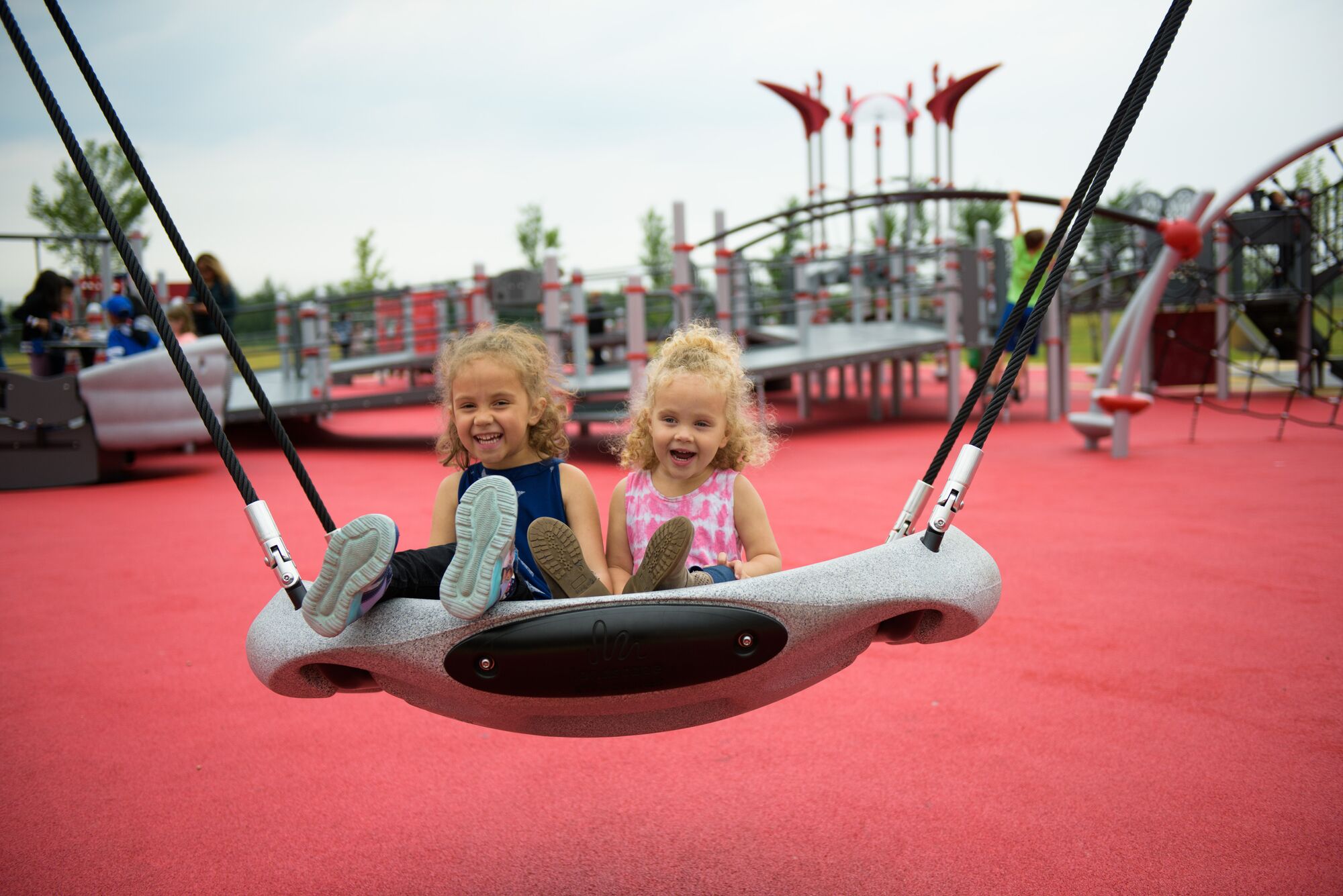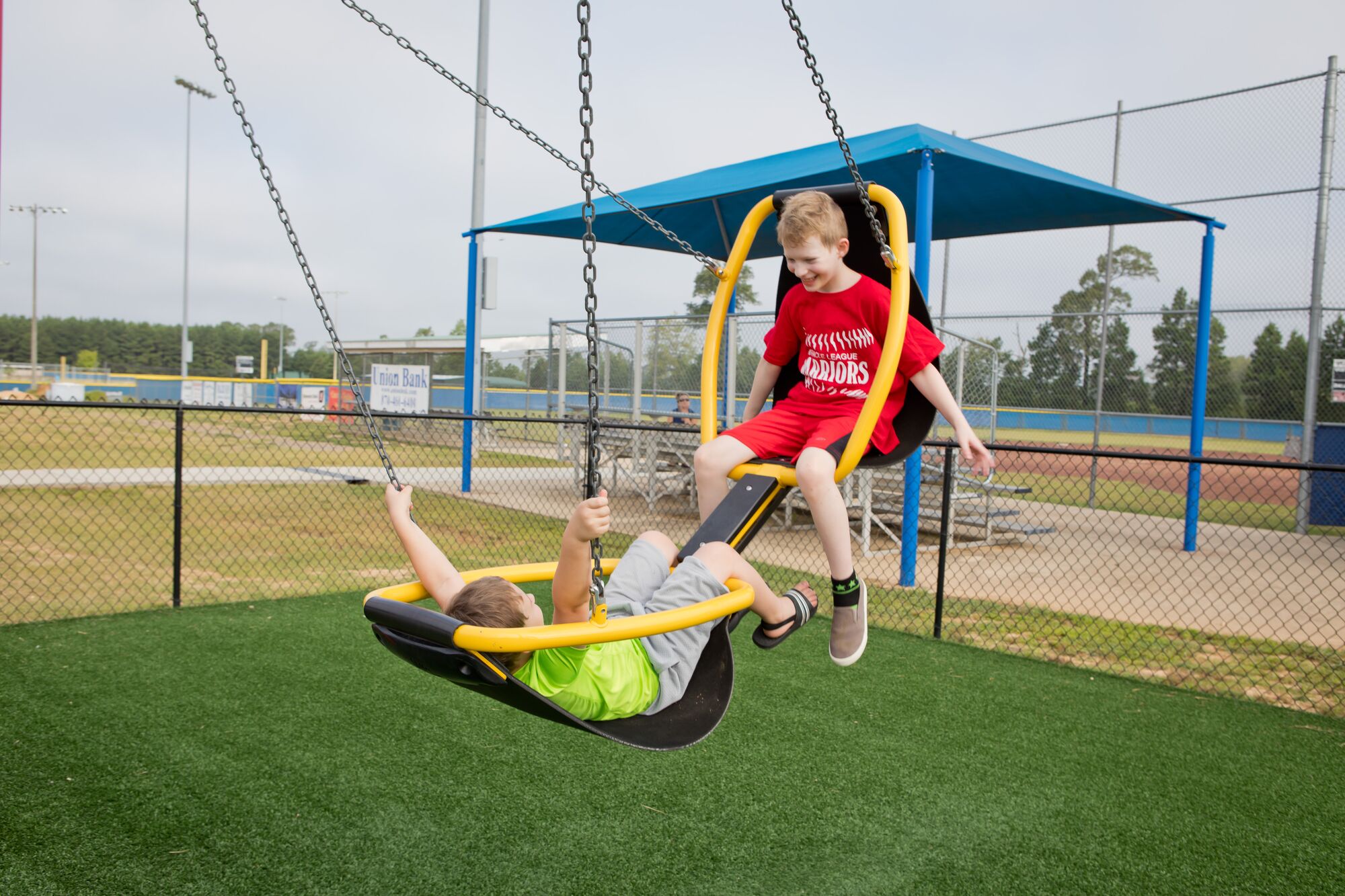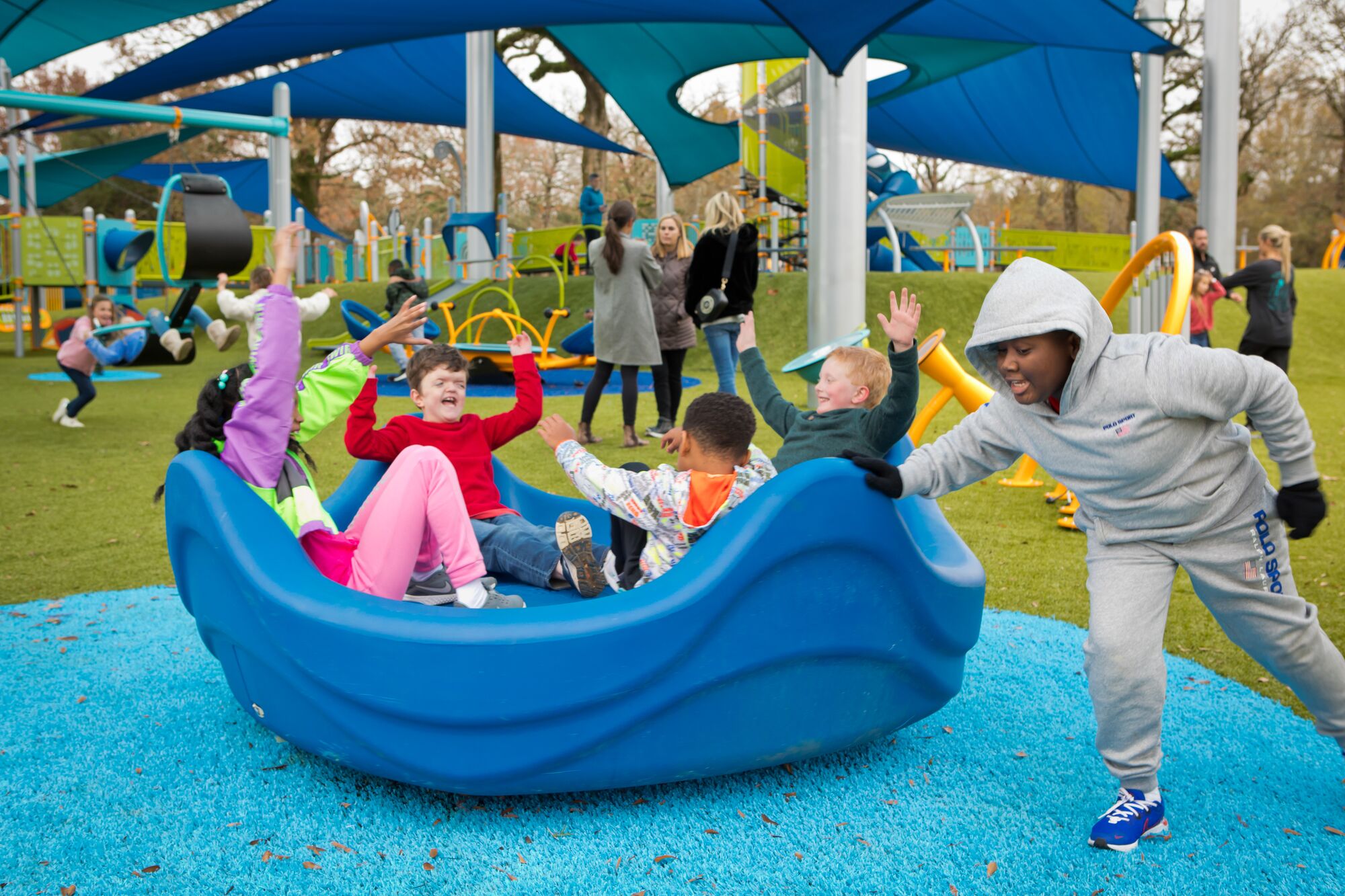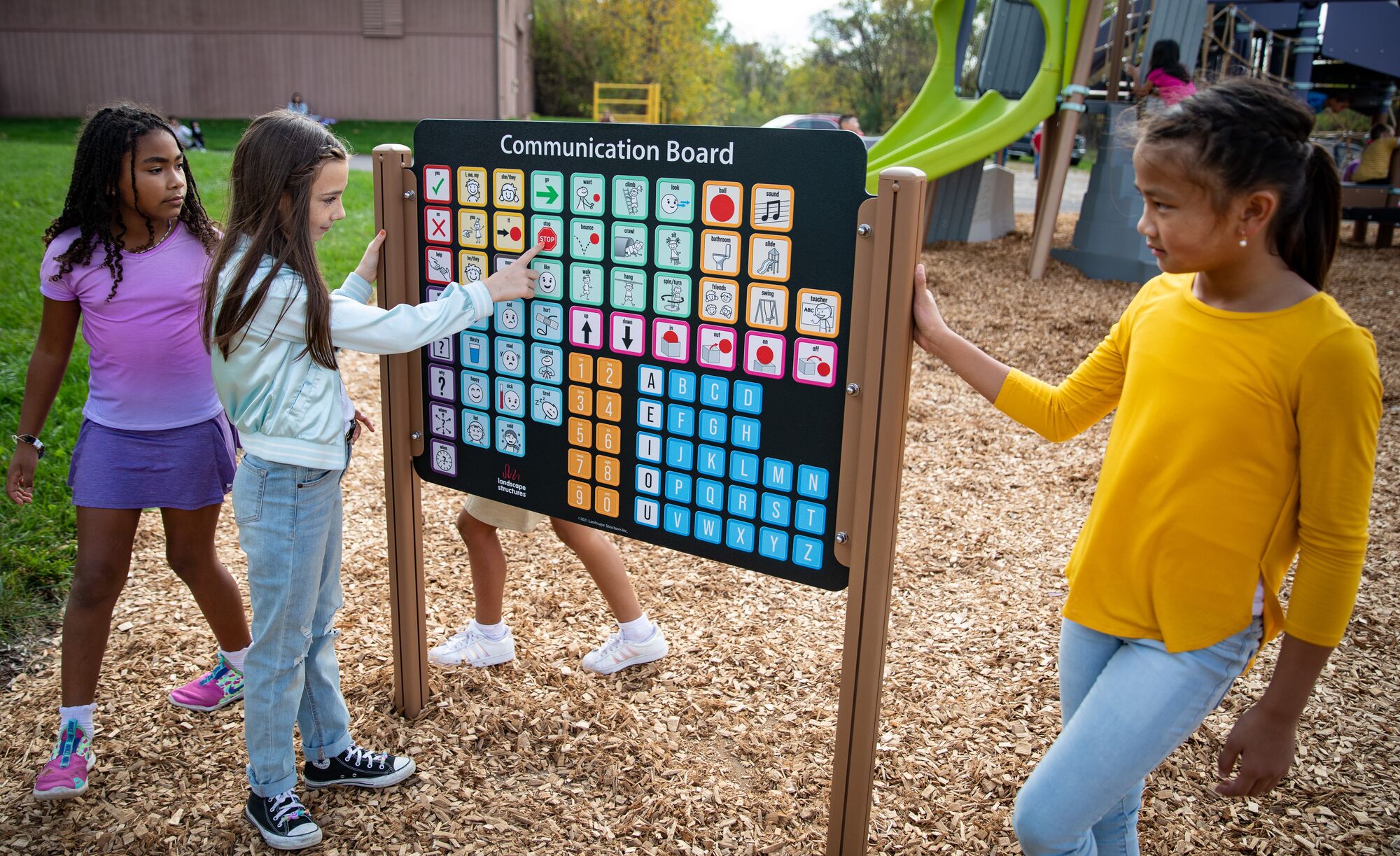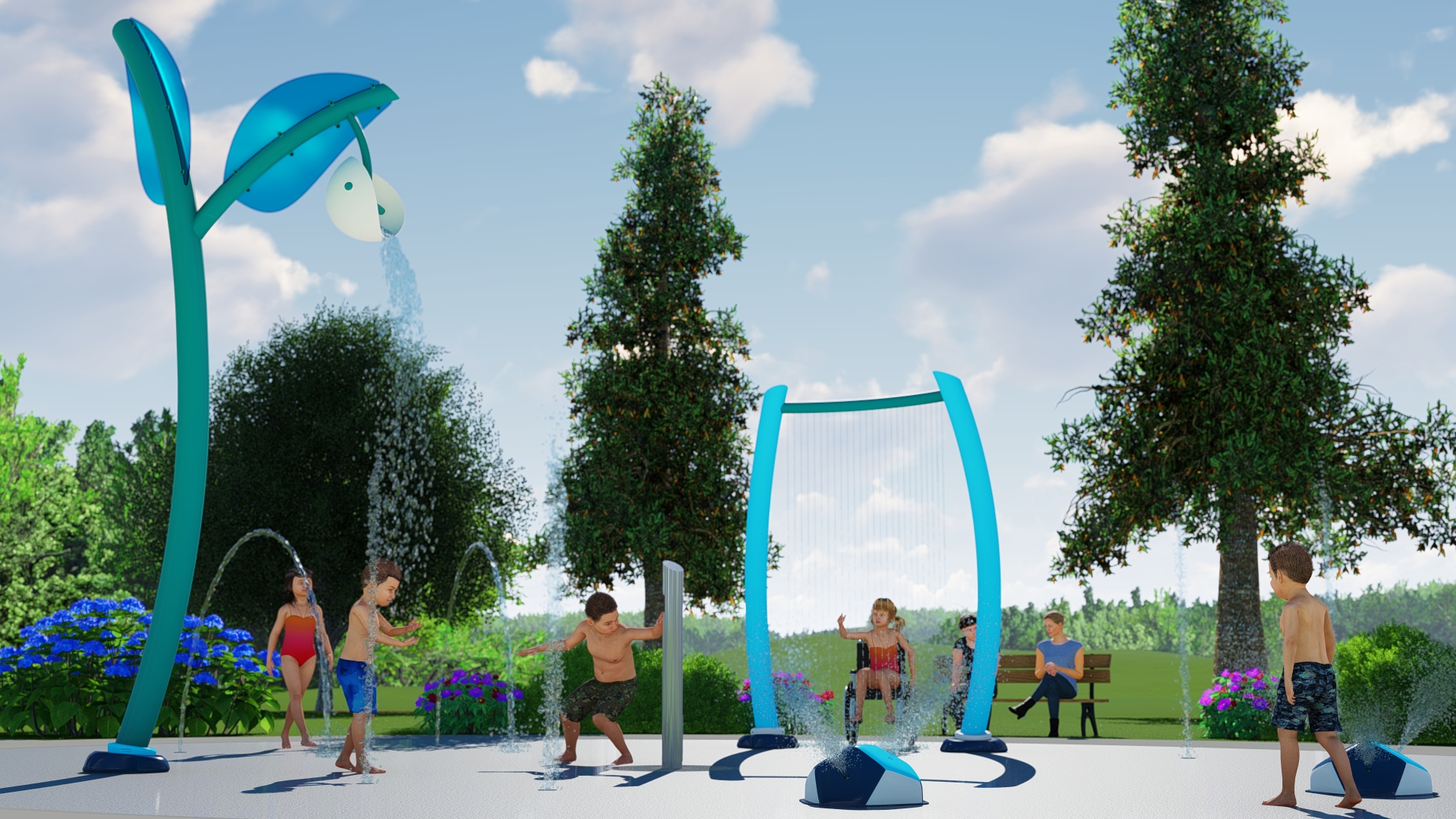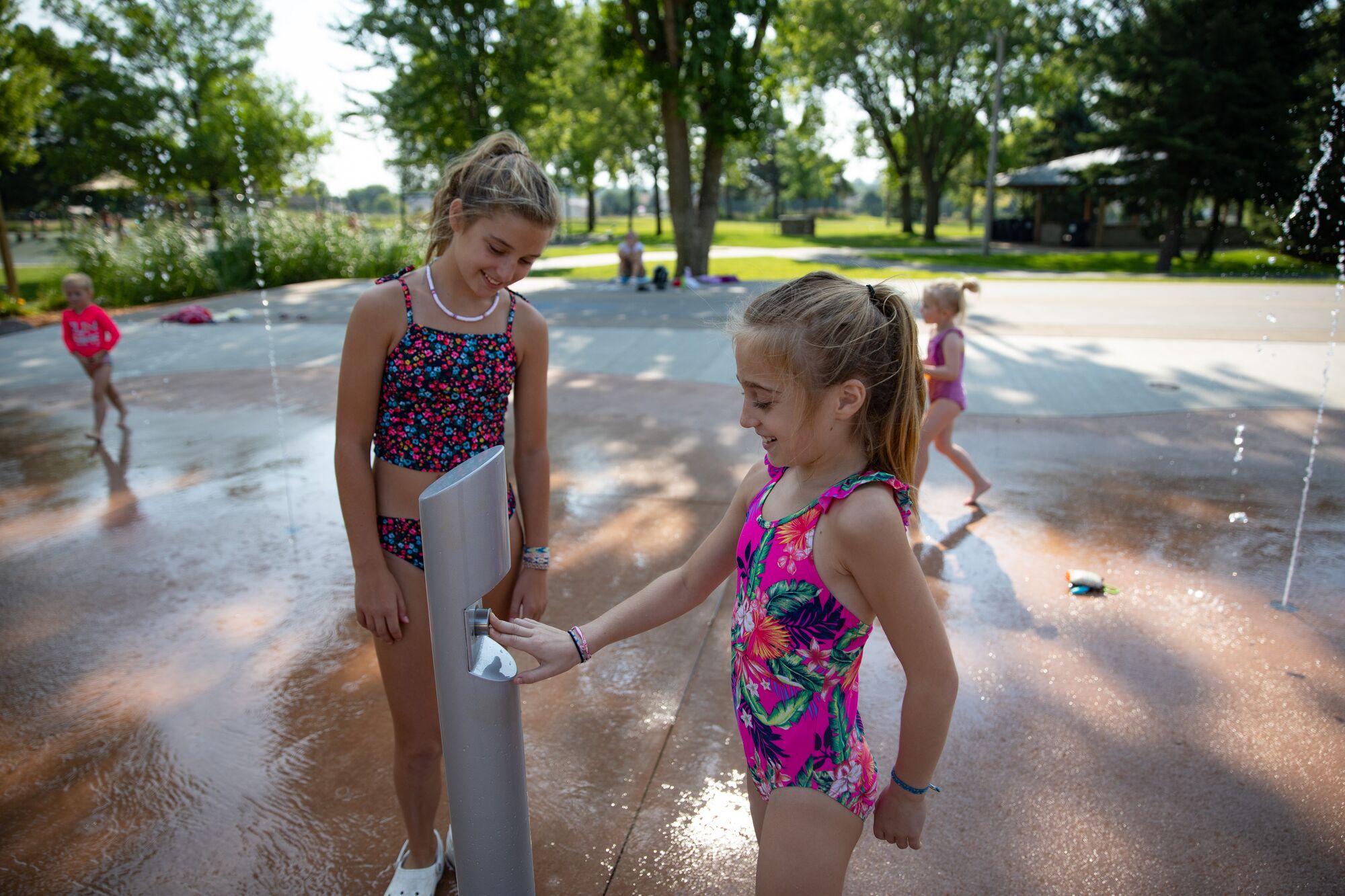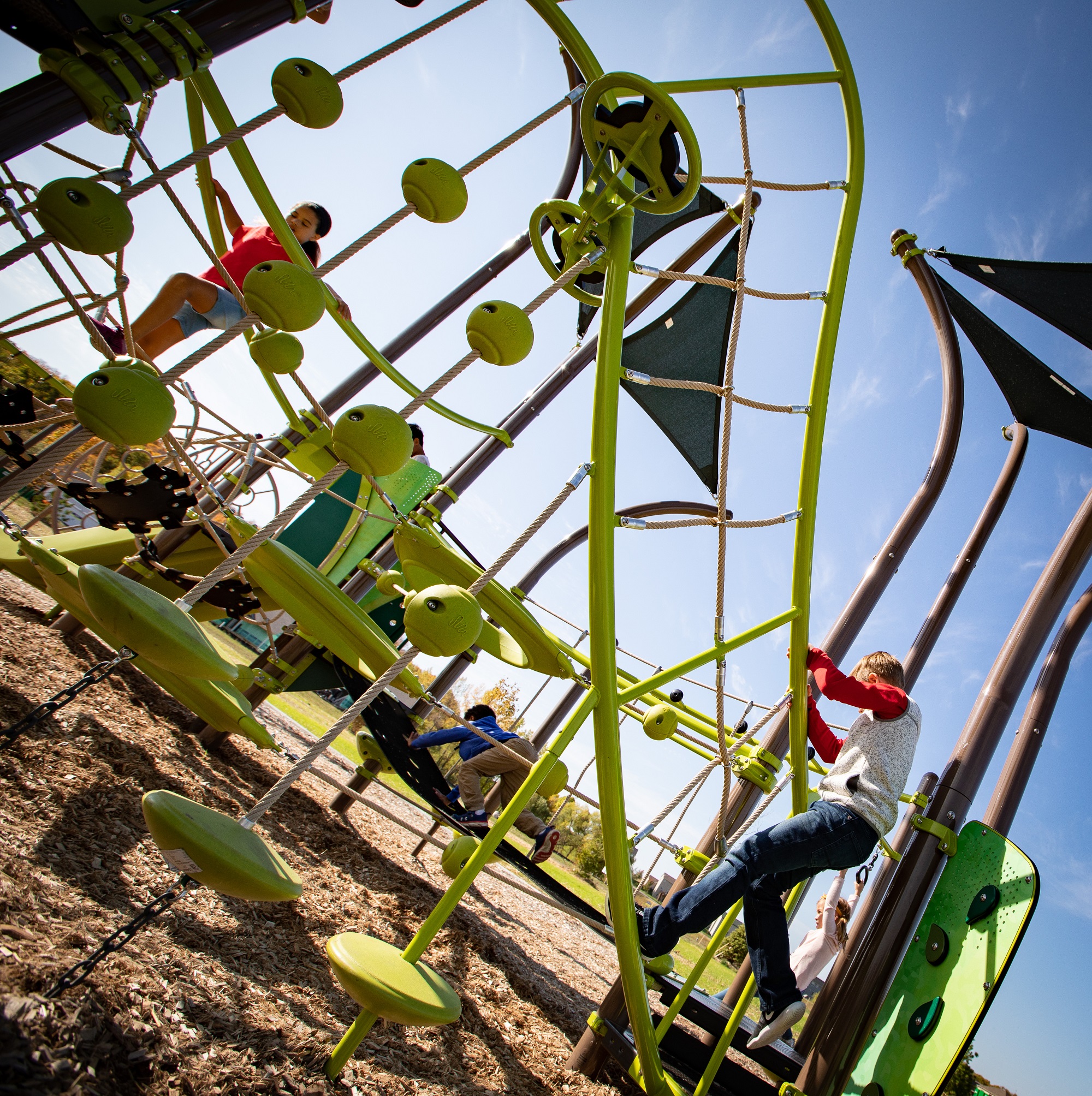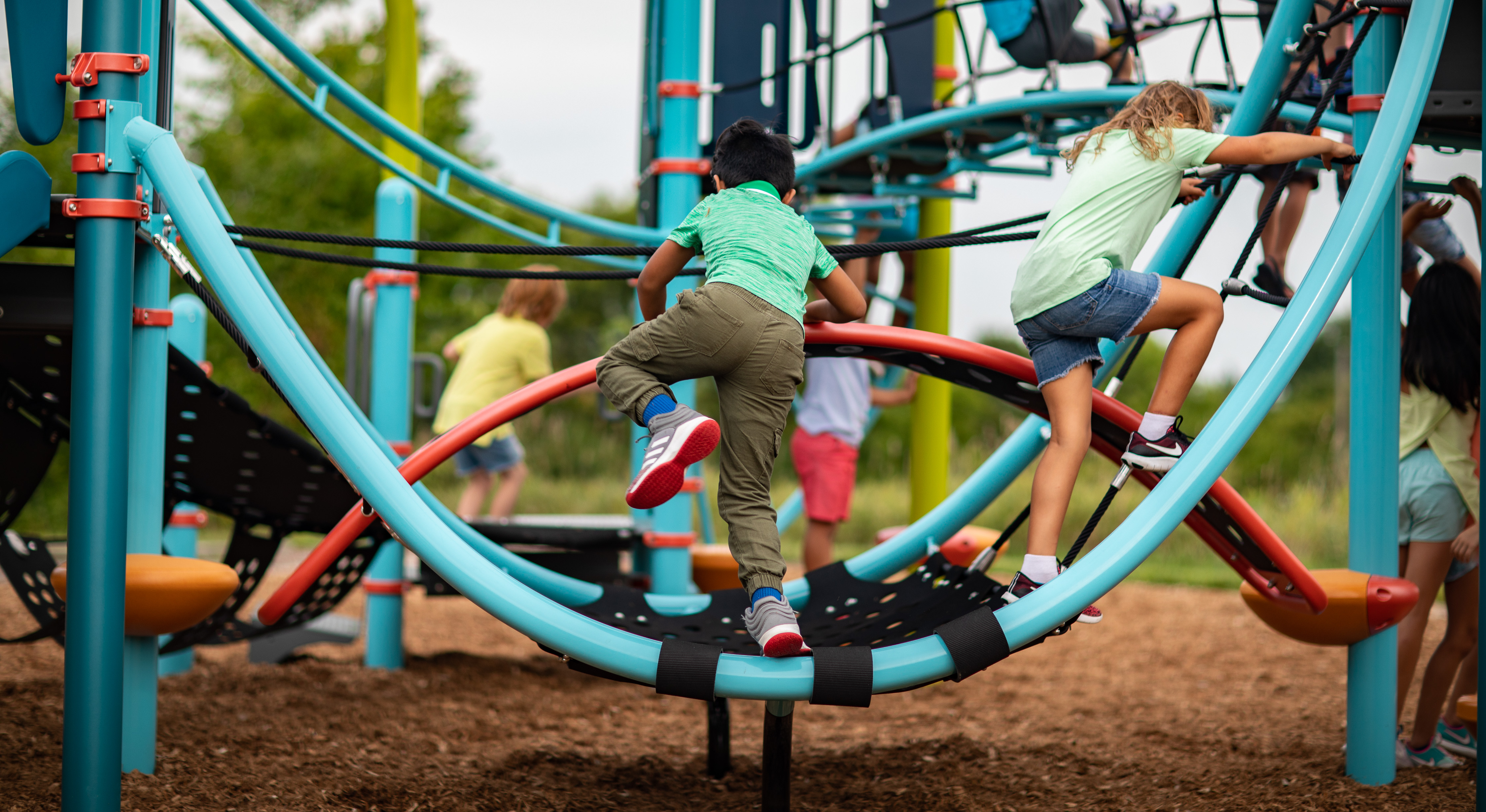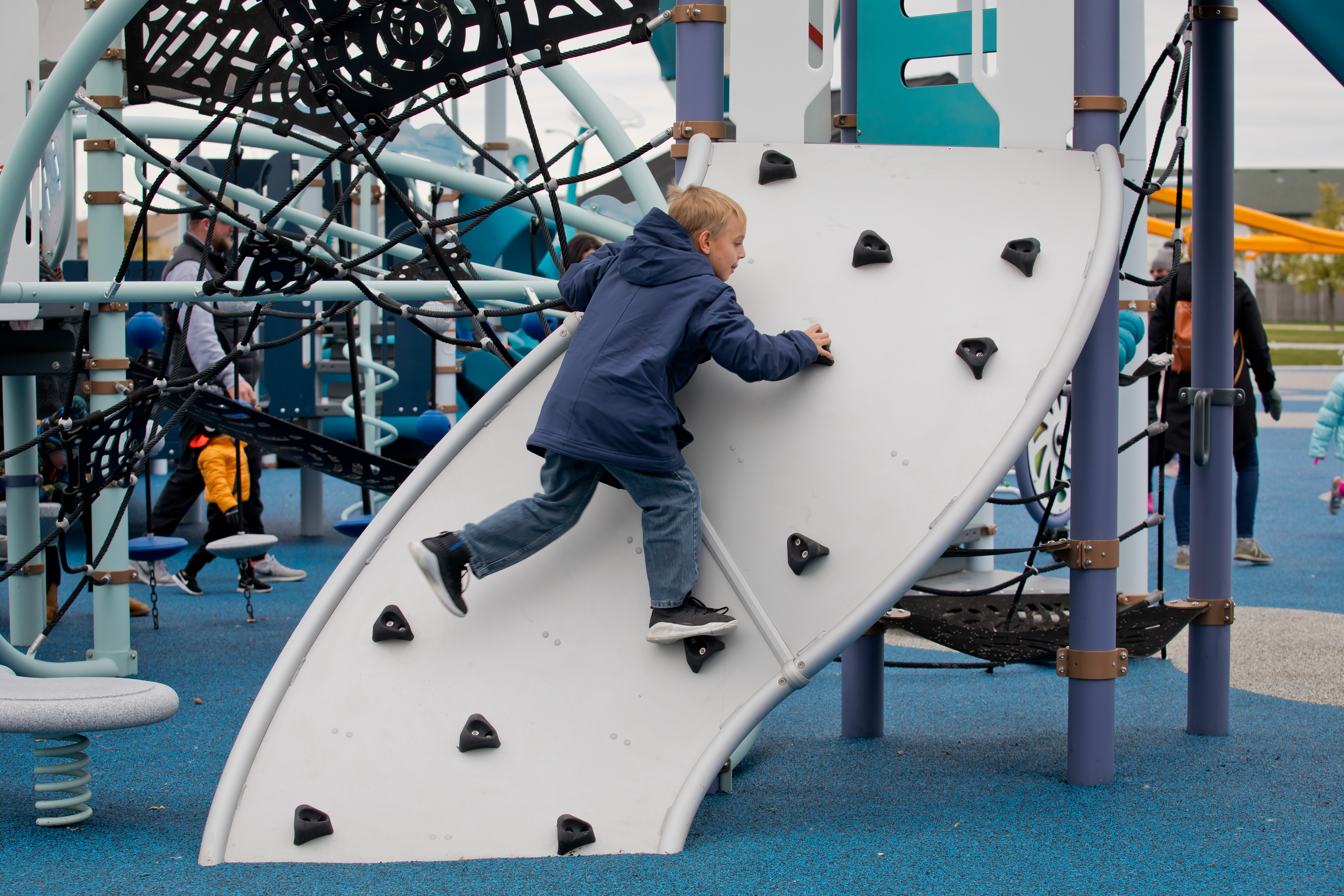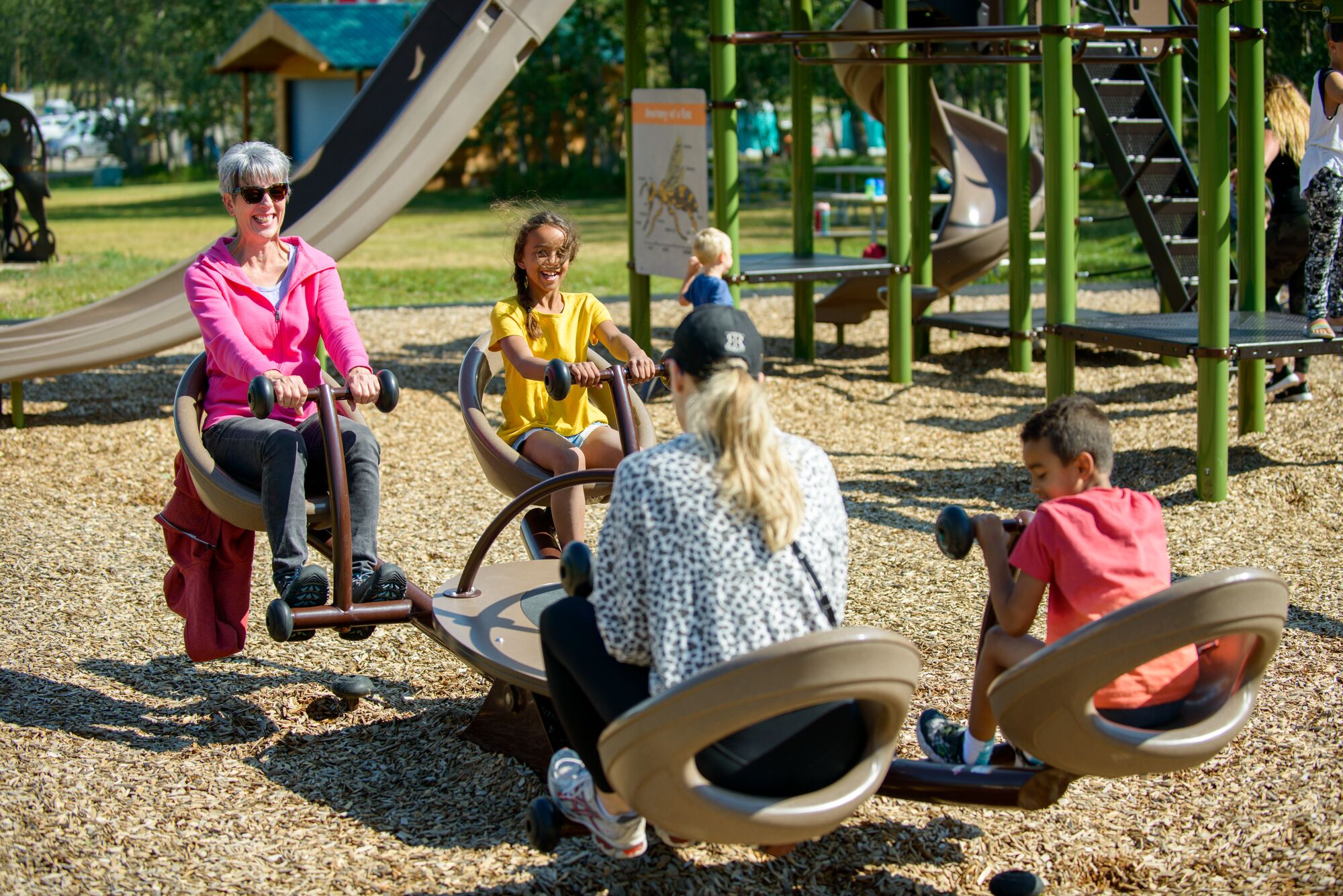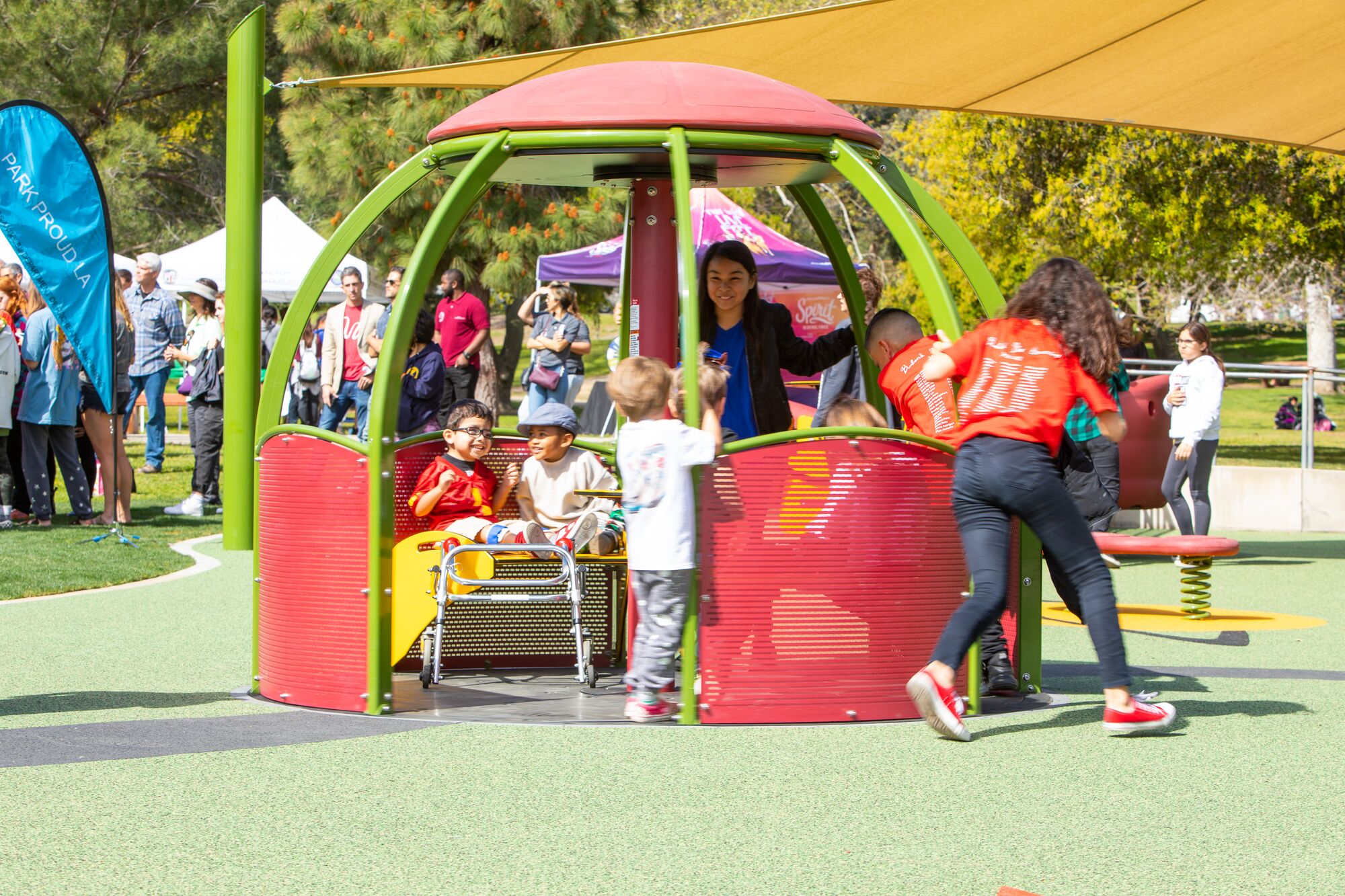Our inclusive playground design philosophy at Landscape Structures is heavily influenced by the tenets of Universal Design. It is a theory of design that strives to make environments more usable, safer and healthier for all. This philosophy has been part of our commitment to inclusion since co-founder, Steve King, was appointed to the Federal Access Board’s Recreation Access Advisory Committee in 1993.
Universal Design sets us up for equity, which is a step above equality. Equality gives everyone the same treatment whereas equity ensures success and opportunity to all. So Universal Design goes beyond providing everyone the access to an even playing field… it delivers a chance to thrive in it.
Universal design simply means that it’s for everyone. Young, old, all levels of ability status, parents with a stroller, individuals that refuse to make two trips carrying the groceries inside… everyone. In theory, it should just be called design.
Our team of designers, engineers and inclusive play experts follow the Seven Principles of Universal Design:
Equitable Use. The design is useful to people with diverse abilities
This is about as many people as possible being able to use a product in a really similar way. This is stuff like poured-in-place surfacing or turf with seamless transitions. People using mobility devices could roll on it as smoothly as non-users could walk on it. The We-Go-Round®, We-Go-Swing® and Sway Fun® glider are examples of playground components that fit this category.
Flexibility in Use. The design accommodates a wide range of individual preferences and abilities giving users a choice in how they engage each activity
Flexibility in use offers choice to users, and a great example of this is the We-Go-Round. Individuals in wheelchairs can roll on and stay in their chairs or choose to transfer to the seat. They have and choice and can participate in whatever way they feel most comfortable. Other examples include the elevated sand table at different heights and multiple types of playground swings with unitary surfacing paths. It also includes having seating, sinks, hand dryers and adult-sized changing tables throughout the space, catering to various body heights and types for flexible comfort.
Simple and Intuitive Use: Use of the design is easy to understand regardless of the user’s experience, knowledge, language skills or current concentration level
If an individual sees a drum, they know what to do with it. If they see the OmniSpin® Spinner, they know where to push it to make it go. It doesn’t cause stress or complications trying to figure it out. There is a desire to provide challenge to kids within a play space, but if the intent of the component is to spin, they should be able to figure that out quickly.
Perceptible Information: The design communicates necessary information effectively to the user regardless of ambient conditions or the user’s sensory abilities
Symbol communication signs are a great tool to help all users communicate effectively while visiting parks and playgrounds. If there’s information people need to know or be able to communicate, it falls under this category. Lots of words are often used to communicate “no eating,” and can easily be understood with a little circle crossing out food. It’s a more universal method of communication that more people can understand. Additionally, using color contrast and textures provide cues on changes in elevation, alert individuals to busier areas and much more.
Tolerance for Error. The design minimizes hazards and the adverse consequences of accidental or unintended actions
With this design principal, planners discuss boundary fencing as a way to keep kids safe and contained on the playground. Another example is incorporating barriers on a commercial playground structure to reduce the chances of a child falling off it. Additionally, mixed safety surfacing like engineered wood fiber (EWF) combined with rubber should be well-maintained to prevent hazardous drop-offs. When accommodating wheelchairs under play equipment, ensure that the surfacing extends beneath the front wheels to prevent tipping forward.
Low Physical Effort: The design can be used efficiently and comfortably
Anything that keeps user more comfortable for longer, is considered low physical effort. Commercial shade structures, and gradual, low grade are two big topics to consider. Additionally, consider swing seat choices as well as those for the ZipKrooz®. With the Molded Bucket Seat the kids that fatigue more quickly can still get that zooming sensation, but in a less-demanding reclined position.
Size and Space for Approach and Use: Appropriate size and space are provided for approach, reach, manipulation and use regardless of user’s body size, posture or mobility
This principal gives people the chance to move around comfortably. A standard 36-inch wide sidewalk leaves no room for movement alongside a 26-inch wide wheelchair. Wider paths benefit not only wheelchair users, but also those with service dogs, canes, or someone deaf or hard of hearing. The same theory goes for double-wide ramps and activity panels on the playground. Is there room for someone to push up to and play with it? Or if a wheelchair user is engaging with something, is there enough room for others to get around the chair?
Through Universal Design, we increase access, safety, comfort and social participation within all our play environments. This process creates a strong foundation for inclusive playground design that ultimately results in a place where all can play, learn and grow together. Learn more about our commitment to inclusive play at playlsi.com, or by contacting your local playground consultant.

















